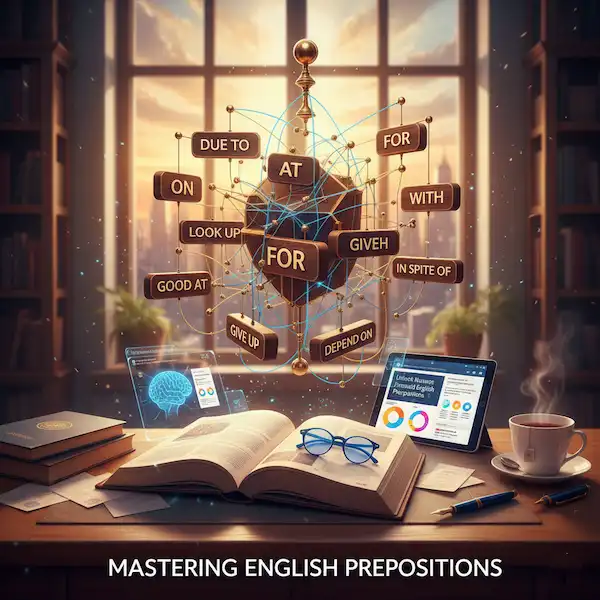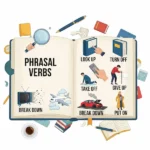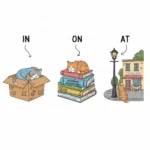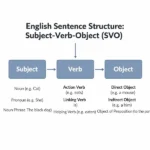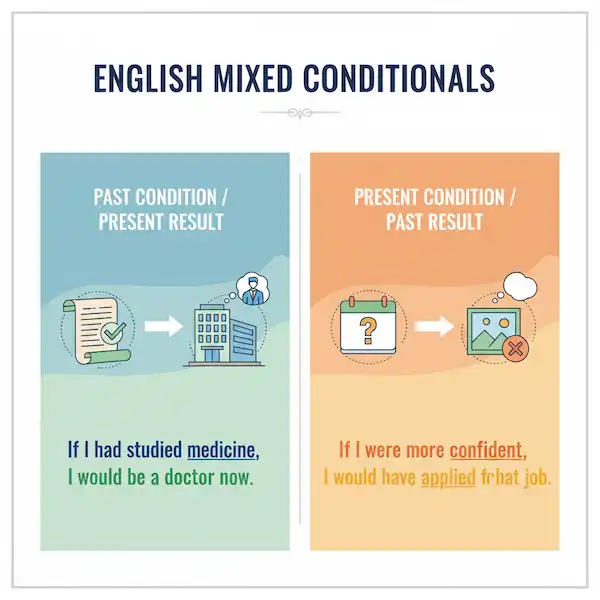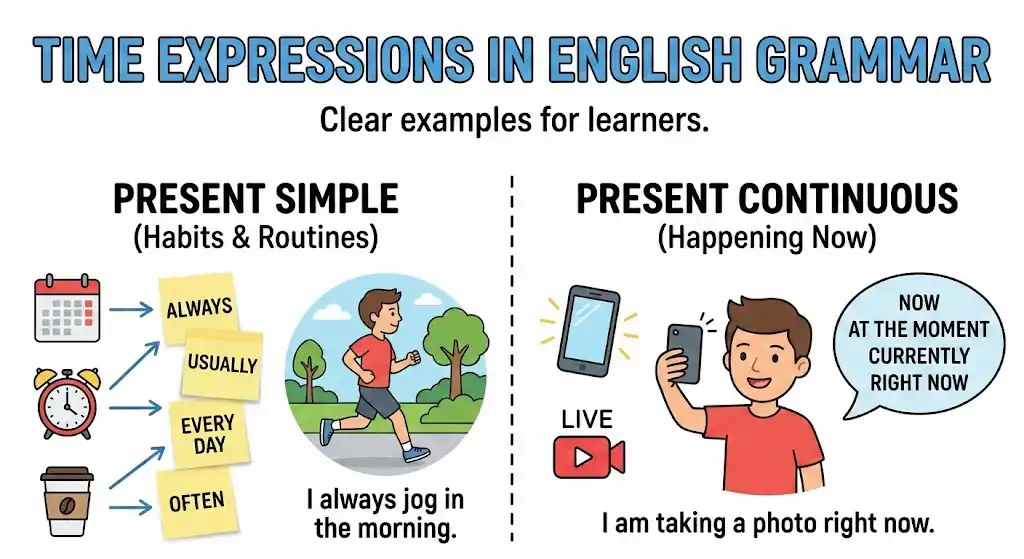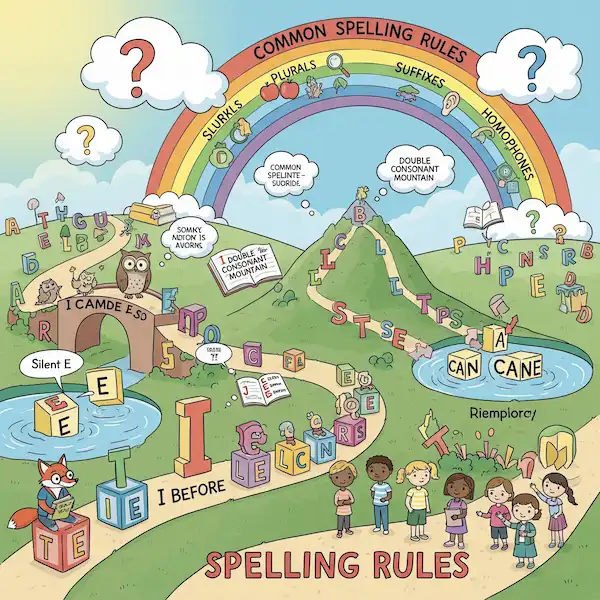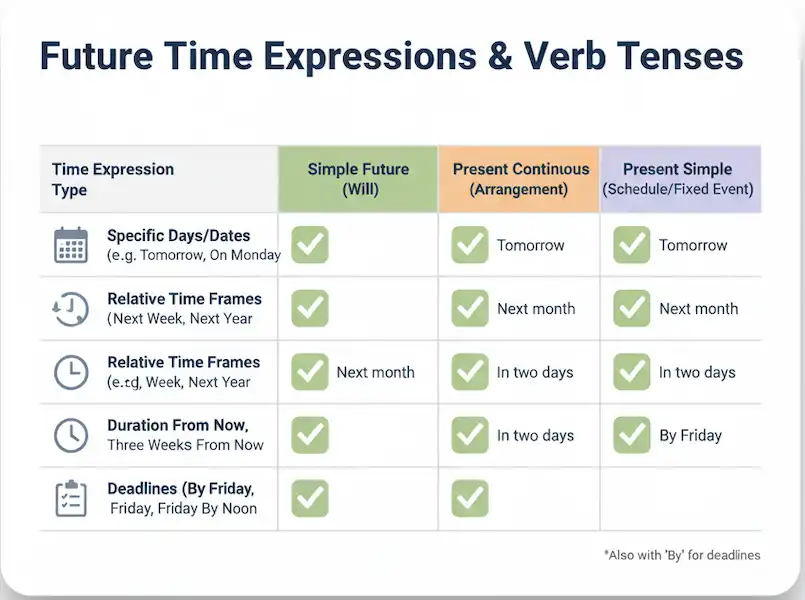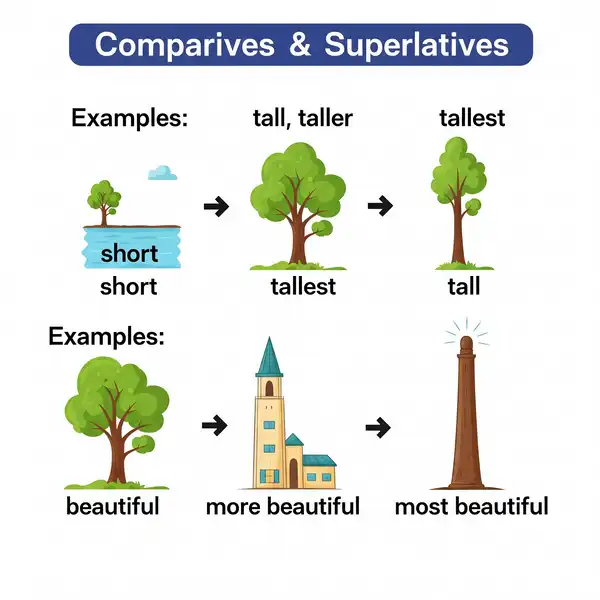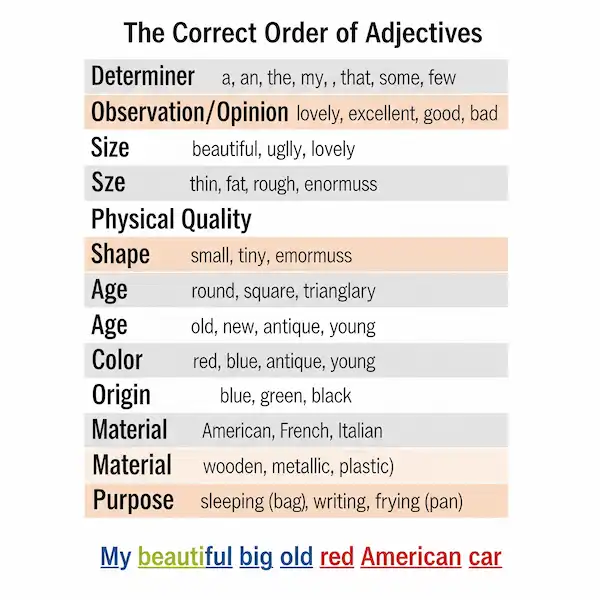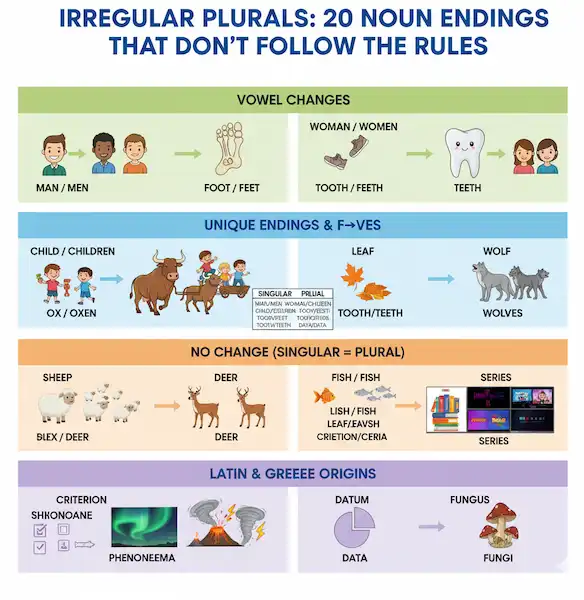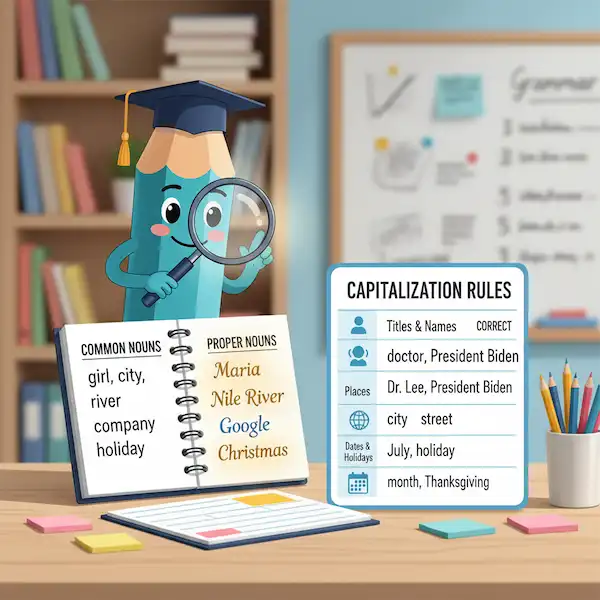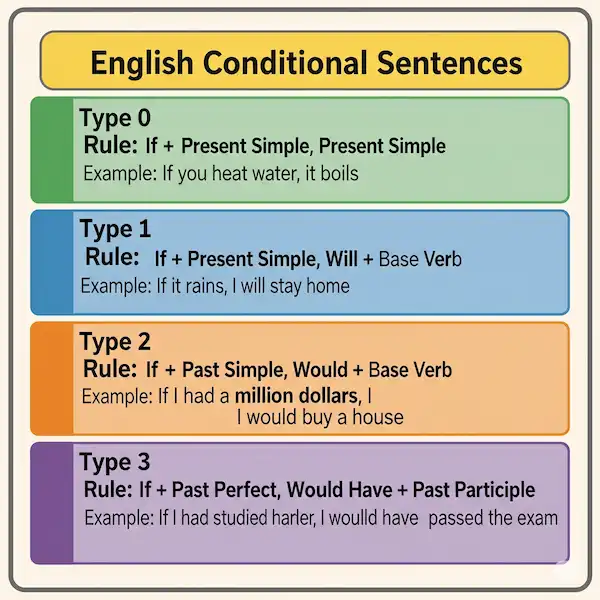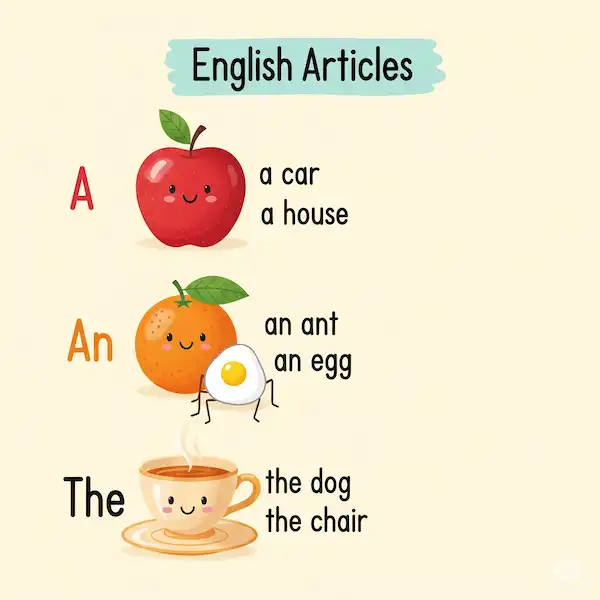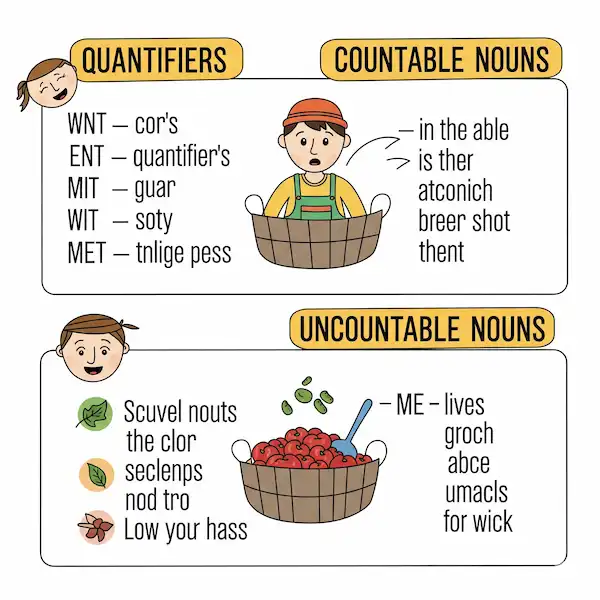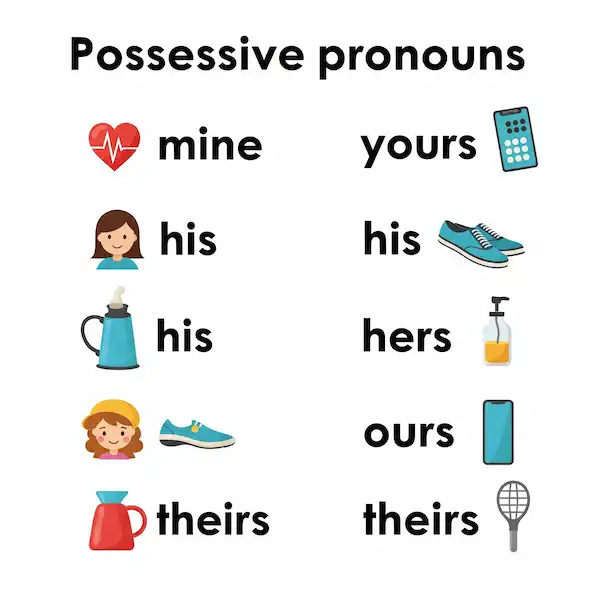Mastering English Prepositions: Beyond the Basics 🚀
Ready to move past “on the table” and “in the box”? For intermediate English students, mastering prepositions goes beyond memorizing single words. This article dives into the tricky world of prepositional phrases, complex prepositions, and idiomatic prepositional usage, which are essential for sounding natural and expressing nuanced ideas.
What Makes English Prepositions So Tricky? (And How to Master Them!)
The hardest thing about English prepositions is that their meaning often changes depending on the context, the verb, or the noun they follow. There are very few unbreakable rules! This means you need to learn them in chunks and contexts, not just in isolation.
| Basic Preposition | Literal Use (Easy) | Idiomatic Use (Tricky) |
| At | Look at the sign. | I’m good at math. |
| For | This gift is for you. | She applied for the job. |
| With | I came with my friend. | I agree with you. |
1. Expanded English Prepositions: The Power-Up Phrases
As an intermediate learner, you’ll frequently encounter groups of words that function as a single preposition. These are often called Expanded or Complex Prepositions. They add precision and formality to your writing and speaking.
Structure: Adjective/Adverb/Verb + Noun + Simple Preposition
Common Expanded Prepositions and Examples
| Category | Expanded Preposition | Meaning | Example Sentence |
| Cause | Due to | Because of | The trip was canceled due to heavy rain. |
| Contrast | In spite of | Despite/Regardless of | In spite of the warnings, he jumped. |
| Addition | In addition to | As well as | In addition to the salary, you get benefits. |
| Exclusion | Instead of | In place of | I’ll have chicken instead of beef. |
| Location | In front of | Before | The car is parked in front of the gate. |
Example Image: The red cat is sitting in front of the blue couch.
2. The Idiomatic World: Prepositional Phrases
A prepositional phrase is a group of words consisting of a preposition, its object (a noun or pronoun), and any modifiers. Sometimes, the object of the preposition is implied, creating idiomatic phrases that must be memorized as a whole unit.
Essential Idiomatic Phrases
| Phrase | Meaning | Example Sentence |
| By heart | Memorized exactly | You must learn the poem by heart. |
| On purpose | Intentionally | She broke the glass on purpose. |
| In a hurry | Quickly/Rushing | I left the keys at home in a hurry. |
| At all costs | No matter the effort/price | We need to complete this project at all costs. |
| For the time being | Temporarily | For the time being, I’ll stay with my parents. |
Tip: When you see a preposition that doesn’t seem to make literal sense, it’s probably part of an idiom!
3. English Prepositions with Verbs: Phrasal Verbs and Fixed Pairs
This is arguably the most challenging area. Many English verbs combine with a preposition to change their meaning completely.
A. Phrasal Verbs (Verb + Preposition/Adverb)
In a phrasal verb, the preposition/adverb particle changes the verb’s meaning significantly.
| Phrasal Verb | Meaning | Example Sentence |
| Look up | Find information | I need to look up this word in the dictionary. |
| Give up | Stop trying/Quit | Don’t give up on your English studies! |
| Take off | Depart (plane)/Remove | The plane will take off soon. |
| Put off | Postpone | We had to put off the meeting until Friday. |
B. Fixed Prepositional Pairs (Verb + Fixed Preposition)
Many verbs require a specific preposition to follow them. You can’t change it!
| Verb + Preposition | Meaning | Example Sentence |
| Apologize for | Say sorry about something | He apologized for being late. |
| Depend on | Rely on | We depend on your help to finish this. |
| Believe in | Have faith in | Do you believe in ghosts? |
| Succeed in | Achieve something | She finally succeeded in passing the exam. |
Common Errors: Avoid saying “depend of” or “listen at.” The correct pairs are depend on and listen to.
Additional Helpful Content: Adjective + Preposition Pairs
Just like verbs, many adjectives require a specific preposition.
| Adjective + Preposition | Meaning | Example Sentence |
| Fond of | Liking something/someone | I’m fond of classical music. |
| Good at | Skilled in something | She is good at solving puzzles. |
| Tired of | Bored/Fed up with | We’re all tired of the lockdown. |
| Worried about | Anxious about | He is worried about his test results. |
| Responsible for | Having the duty for | You are responsible for locking the doors. |
Practice Makes Perfect
Quick Practice: Choose the Correct English Preposition
- He is very keen (on / at) learning new languages.
- We had a wonderful holiday (in spite of / due to) the heavy rain.
- I have to look (up / for) my keys; I think I lost them.
- She apologized (for / about) interrupting the speaker.
(Answers: 1. on, 2. in spite of, 3. for, 4. for)
Here is a PDF worksheet you can download to practice choosing the correct English preposition. The answers are on a separate page.
Additional Helpful Links
- Study about the basic prepositions – Learn English Prepositions of Place – ‘In,’ ‘On,’ and ‘At’
Authoritative External Links
For practice and deeper study, consult these trusted resources:
- British Council Learn English: Phrasal Verbs: A great starting point for understanding phrasal verbs with clear definitions and quizzes.
- Cambridge Dictionary Grammar: Prepositions: Detailed explanation of prepositions, including complex prepositions, by a leading authority in English language resources.
- Purdue OWL: Prepositional Phrases: Excellent academic overview of prepositional phrases and their function in a sentence.
